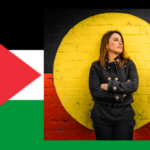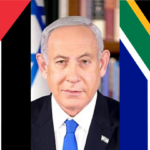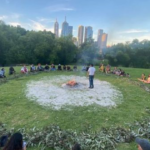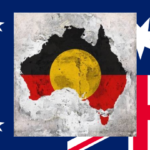Prosecuting Australian Genocide: A Chat With Uncle Robbie Thorpe and Barrister Len Lindon
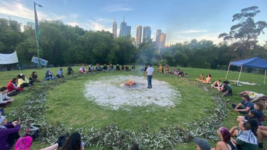
Currently, litigation that charges King Charles Windsor III with the crimes of genocide and ecocide is doing the rounds of the Victorian court system.
Having been launched by Gunnai Mara elder Uncle Robbie Thorpe, the case was lodged in October and then rejected by the Victorian Magistrates Court in late December.
However, Thorpe and Aboriginal genocide barrister Len Lindon resubmitted the case to the Victorian Supreme Court on Wednesday, to have the decision to reject the case in the lower court reviewed, and in something of a stroke of luck, the higher court has determined to deliberate on the matter.
Indeed, both men have been attempting to get various First Nations genocide cases up in Australian courts since the late ‘90s, and they’re delighted with the recent Supreme Court decision, as the idea is to run it through the system a number of times and if it’s not accepted, take it to the global courts.
And the pair consider that it’s just a matter of time before such a case does get up in a local court, as, right now, the supressed truths about this nation – its founding and its denial of the sovereign peoples – are rising to the surface, and the genocide in Gaza is compounding this awareness.
Dressing the colonial windows
The Howard government in September 2002 inserted three of the four core international atrocity crimes into the Criminal Code Act 1995 (Cth). And since that time, division 268 of the Criminal Code has held the offences of genocide, crimes against humanity and war crimes.
These laws reflect the international atrocity crimes that are set out in the Rome Statute of the International Criminal Court. It entered into force in July 2002, and because Australia had ratified the international agreement, it was required to reflect those offences in criminal law.
And these offences carry universal jurisdiction, meaning they can be applied to any person who commits an atrocity crime anywhere on the planet.
But sections 268.121 and 268.122 of the Criminal Code carry what is known as the attorney general’s fiat, which would be better called the attorney general’s block, as these laws require the nation’s chief lawmaker to sign off on a genocide case prior to its launch, and this decision can’t be reversed.
Senator Lidia Thorpe now has the Criminal Code Amendment (Genocide, Crimes Against Humanity and War Crimes) Bill 2024 before committee review, as it seeks to remove the attorney generals’ fiat from its application to these atrocity crime laws.
Colonisers coming unstuck
The heightened focus on genocide at present has had many locals questioning whether senior officials, like PM Anthony Albanese and foreign minister Penny Wong, might be liable to be found guilty of complicity in genocide for supporting Israel in its military operations in Gaza.
But the speculation about whether such a case would be launched was quelled on Tuesday morning, when Birchgrove Legal barrister Sherryn Omeri KC announced that she and other lawyers have submitted an accessory to genocide claim against Albanese, Wong and other key political figures.
Sydney Criminal Lawyers joined Uncle Robbie Thorpe and barrister Len Lindon live on 3CR’s Bunjil’s Fire program, which Thorpe hosts, on Wednesday, to discuss the genocide case against King Charles III, the genocide case against prime minister Anthony Albanese and the reckonings that are coming.
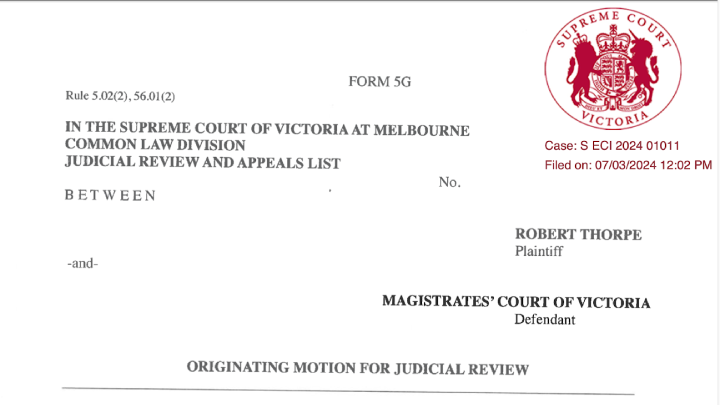
Uncle Robbie and Len, you’ve been involved in genocide cases focused on those perpetrated against the First Peoples of this continent. That these cases are being launched is little known amongst the wider public.
And whilst this might seem obvious, can you talk about why there’s a valid basis for running such cases in this country?
Robbie: It’s clearly true. If you look at the Genocide Convention, I challenge you to name anything in that act that Australia is not guilty of, for a start. So, we’ve got a valid case in regard to that.
Australia has obviously failed to punish anyone for the crime of genocide. Justice Crispin of the ACT Supreme Court said that there is ample evidence of genocide occurring in Australia, but he qualified that by saying that the intent behind it has to be proved.
And we can do that, if we have the right support.
Australia is clearly built on genocide. We challenged them back in ’97. I would have done it earlier if I had the resources and support.
We were able to challenge the Commonwealth government over the 10-point plan to say it was an act of genocide, as it’s continuing to strip away our rights in terms of the hopeless Native Title Act to begin with.
That is what motivated us in the original 1997 case Thorpe versus The Commonwealth. We charged Howard and Fisher, that was the coalition at the time, and they created the 10-point plan.
Can you briefly explain what the 10-point plan was?
Robbie: It was about stripping away the rights that Native Title had given us. And that was pretty piss poor to begin with.
They started snatching it all back through the 10-point plan. They talked about balancing things up, as the pendulum had moved too far to the left. So, they were going to level it up.
This is the rightwing politics in this country: they had to level it up and apply the 10-point plan to the Native Title Act.
It was pretty disgusting, and in the context, it was an act of genocide for our people.
So, why would you say native title rights don’t match up to land rights, which was the original campaign focus?
Robbie: Land rights has a much deeper meaning than the light land entitlement of Native Title. The Native Title is a title that is less than a pastoral lease, which is a title for foreign animals.
This is hardly what we meant by land rights. Land rights is about our sovereign rights to the rule of law in this country.
Our right to practise our religion in our Country. Our right to exist freely on our own Country.
It was much more than just a mere entitlement granted by a racist foreign occupation. So, Native Title is an act of genocide itself.
In fact, I would say every law that they’ve applied to us, no matter what it is, has got a genocidal character about it, and they haven’t got a right to make laws about us.
We’ve got a law ourselves. So, why do they think they have a right to make a law for our people, when they haven’t even got a right to be in this country?
They have got no consent. They have got no treaties. Obviously, they have no jurisdiction. So, why do they think they have a right to apply their backward dark age law on us?
That’s an act of genocide if you think you’ve got the right to deny our sovereignty and apply your colonial laws to us. You are failing to recognise who we are.
You’ve recently launched a genocide claim against Charles Windsor, King Charles III, charging him with genocide and ecocide with the Yoorrook Justice Commission.
Can you broadly explain the case, and what’s happening with it?
Robbie: Well, our claim is to Chuck the Turd- Charles the Third: the foreign so-called sovereign of this land. How do they justify even saying that?
We know that terra nullius was described as an “unutterable shame”. So, if the foreign sovereign is premised on an act of unutterable shame, well, you know, it doesn’t cut it for me and many other people.
Clearly, there is a case there, and we are calling it out. How does the British Crown claim to have sovereignty over our sacred land here.
There has never been any consent or treaties. So, tell me how they apply their law in this country?
So, in terms of the case, what evidence have you shown for genocide and ecocide?
Robbie: There’s ample evidence for ecocide. There is more than enough evidence of genocide. Like I said, if you look at the Genocide Convention 1948, there is nothing in that act that Australia is not guilty of.
Surely, that’s got to be ringing alarm bells: a terra nullius-based illegal occupation. Australia has been out of sight, out of mind for the rest of the world.
They have a thing called the White-Only Constitution. Then there are all the crimes that have happened. All the deaths in custody. The massacring. The forced removal of our children, creating conditions harmful to life, preventing births – you name it.
Everything in that act, Australia is guilty of. So, we’re trying to get them into the International Criminal Court.
The problem has been that we’ve had people like the attorney general vetoing people trying to access that international law. That’s a crime in itself.
So, looking at the Windsor case how does it stack up compared to other genocide cases that have been run here? Does it hold up where others haven’t?
Len: It is a bit dirty to tell, as they said about the French Revolution. We have just lodged the case this morning with the Supreme Court of Victoria and the prothonotary, which is a fancy word for chief clerk, told us that if we made the Magistrates Court, he’d put the seal on the documents, which means he is going to issue them.
That opens up a lot of possibilities because being in the Supreme Court is a lot different to the Magistrates Court. There is more time to go into the legal arguments. You are not turning through a thousand people a day.
Some of those judges might be pretty educated now about what has happened in this country. They might have a will to do something about it. You do not know for sure, but you would expect so.
Obviously, you can’t go on like this, and the fact that Albanese is in the news helps. Someone I was talking to today, an architect, said she was listening to talkback radio, and they’re all talking about the Albanese case, and they’re all discussing what the International Criminal Court is, what genocide is and what complicity is.
So, it’s really broadening out.
So, you lodged the Windsor case today with the Supreme Court?
Len: We lodged it on 20 October last year, and they dicked around for months before they finally turfed it out.
They waited until Friday, 29 December, perhaps the quietest day of the year in Court Land. They sent us a letter saying that they were chucking it out.
Then we tried to appeal it, but, of course, the Magistrates Court wouldn’t tell us how to appeal.
Apparently, there is an internal review procedure, and the Supreme Court appeal section said there is no criminal proceeding afoot and there is no final order, so it doesn’t really apply, and you can’t really appeal.
So, we’ve gone for this procedure called judicial review, which allows a judge to look at whether a decision of an official, including in the lower courts, is unlawful.
So, in the course of that, we are getting Victoria to admit that there was never any document of consent, that they only gained jurisdiction through genocidal invasion and the power of force.
We’ve got them to admit that they’ve stolen the wealth of the people that were here.
Now, they’re only going to admit that, or they are not. The case is now stuck in the system. And it won’t make it to the High Court, as that court sees itself as just dealing with ultimate questions of law, and they won’t get into the weeds.
But we have come up from the weeds now in the Magistrates Court. There are only two things that are going to happen. It is either going to be sent back to the Magistrates Court to have a proper hearing, which they’re not doing, or it will be decided it can be heard as an appeal, or the court’s going to look at reviewing what the magistrates and the registrars did wrong down there when they were ducking around it.
Even if none of those things happen and the Supreme Court says there is no appeal or judicial review, then you have a right to appeal, so you go to the appeals court and then you go round again, trying to make your way to the higher court.
And over the course of that, you are developing a pretty good prima facie case to put to the International Criminal Court that Australia is either unwilling or unable to prevent or punish genocide, and if you can show that, then the International Criminal Court has juridiction of its own motion to investigate.
Then you crossed the bridge that says if bombs aren’t being dropped on you right now and you are not seeing tonnes of people, as in Myanmar or Rwanda, being killed, then there is no genocide occurring.
But when you look at the definition of genocide, it includes causing serious mental or physical harm and imposing conditions of life likely to destroy a group, in whole or in part.
What we are saying is, after several generations of this, starting with the massacres and the poisoning, it’s just extermination and then the continuing oppression of Aboriginal people.
It doesn’t take much to cause serious mental harm. And in fact, just looking at the crime of murder, you can murder someone by causing them serious mental harm. Murder takes all forms.
So, there is an argument there that it doesn’t have to be bombs on your TV to equal genocide.
Further, there is a more serious question of intent for genocide, they say, as opposed to crimes like murder.
You have to show an attempt to destroy a group, in whole or in part, and we are saying, first of all, “What is the intention of the doctrine of terra nullius?” If you are saying there is no one here, you are well on your way to exterminating people.
Following on from that, we are saying today, that if you deny sovereignty to Aboriginal people, you are denying their existence as a group, because Aboriginal people are a particularly lawful group.
The custodianship of the land is governed by law and the relationship of everything: the people, the land and their totems. It is governed by law.
If you deny them being a sovereign group, then you are denying their lawfulness as a group. And pretty clearly, that is an intent to destroy.
Just like in ordinary criminal law, you don’t have to actually prove that someone had intent. No one is going to own up to the intent to commit genocide.
But you can infer it from the actions of the accused, and one of those actions would be continually denying the sovereignty of Aboriginal people.
Are you convinced by this Paul, as a first-time listener? Does it persuade you?
That terra nullius argument definitely does persuade me.
So, these cases have been run since the late ’90s. And in 2002, the government inserted division 268 into the Criminal Code, with the crimes of genocide, crimes against humanity and war crimes, which are the sort of offences that can be used to punish the crimes we’re talking about.
Did the appearance of these laws change the nature of genocide cases being run in this country? Have they worked?
Len: They weren’t really enacted. You can say you’ve got a crime of genocide but, if you say the only person who can bring that charge in the whole of Australia is the white attorney general, how can you seriously say that genocide is a crime?
You can only say genocide is a crime when any person can walk into any court, just the local Magistrates Court, and say to the judge, “There is genocide going on.”
Then the usual protections of defendants occur.
Once you’ve laid the charge and had directions hearings, you’ve produced a committal brief and written statements, all those things then roll into play. It is not as if just by accusing someone of genocide, they’re going to be found guilty.
But at least there is a procedure. At the moment, you can’t even get inside a court with a genocide case.
If Australia didn’t have any history of invasion, extermination and usurpation of law, if none of that had happened, then maybe it would be okay to have the genocide law, when you’re not having a genocide law.
But given Australia’s history, it is pretty clear that this is an attempt not come to grips with this past. It shows bad faith.
There is a bill before parliament from Uncle Robbie’s niece Senator Lidia Thorpe, aiming to remove the attorney general’s block on the prosecution of international crimes, known as the AG’s fiat, as it’s a hindrance to the prosecution of cases under division 268 of the Criminal Code.
What effect will this bill have if passed? Is there a way around the AG’s fiat? And why is it even there?
Len: What fiat means is just ‘let it be done’. It is a Latin term. It is saying the attorney general can sign it to say, let it be done. That is why it is called their fiat.
But what we are saying about the inquiry into Senator Thorpe’s bill is that even if you take that out, there are still a lot of problems with getting charges up because, who’s investigating it?
Where is the permanent body set up to investigate these international crimes. Some countries have something like that.
How can you say you are accessing the risk of genocide if you are not even investigating it?
That is one major problem, and the second thing is, we’re saying it is unconstitutional anyhow.
You don’t need this bill. There is probably Buckley’s Chance of seeing that bill passed. But there appeared Buckley’s Chance that Lidia would get an inquiry into that bill up and she did. So, who knows? Maybe the independents will help here.
But let’s imagine that the Dutton government was elected, and it decided to pass legislation that genocide was no longer a crime in Australia.
Do you think the High Court, which has power to investigate legislation to see if it is unconstitutional, would say that is alright?
Would the High Court say it is inherent in the Australian Constitution in 2024, after nearly 75 years of the Genocide Convention and nearly 25 years since division 268 and the fact that the International Criminal Court is currently hearing cases about genocide in Ukraine and Israel, do you think the very conservative High Court would allow legislation purportedly abolishing genocide survive a constitutional challenge in Australia?
I think not. I hope not.
So, in your opinion, when the Howard government enacted these laws in 2002, it put this attorney general’s fiat in there on purpose to block these cases?
Len: Of course. It is basically like in America where they have all these funny laws about who can vote and where and when, which is just one of the ways of blocking the Black vote, so it doesn’t have any power. This is a classic example.
The general legal principle in Australia is that international conventions don’t have any force unless they are enacted into legislation.
So, why do you think Australia never enacted the Genocide Convention from 1948? You can demonstrate quite a compelling case that this is all by design and quite intentional to avoid any kind of day of reckoning about the past genocides.
What Robbie and people are saying is that the genocide never stopped. You have deaths in custody. Removal of children is out of control. Native Title means you are still being forced off your Country and it is divisive as well.
Conditions of life and causing serious mental harm also apply. Causing serious mental harm is a winner because you could get psychologists to make a reasonable argument that we are literally driving Aboriginal people mad.
Take Lidia Thorpe, she has to swear an oath of allegiance to the genocidal invading force in order to be in parliament and work for her people from there.
Not to mention just the daily denial of sovereignty. Aboriginal people know it’s their Country. They know it is the Country of their mother and father. They know what the law is. They know it will always be their Country.
They come from here. A lot of Aboriginal people consider the idea of a land bridge and people crossing from Africa to this continent just a theory. A lot of people think that’s a theory, and Aboriginal people came from here.
I am yet to see any scientific proof that that is not the case.
And speaking about days of reckoning, it came to light yesterday that a Sydney legal firm, Birchgrove Legal, has submitted an accessory to genocide case against Anthony Albanese and other key Australian politicians with the International Criminal Court.
This is the first time a western leader has been referred to the court. So, I would like to ask you both, what sort of impact it is having now even if it never gets up?
Len: When you say referred, what exactly do you mean? What is the King’s Counsel’s name? Omeri? Sheryn Omeri. She is a King’s Counsel.
That is pretty significant. That is pretty gutsy thing for a King’s Counsel.
Robbie: It opens up the field. The South Africa Israel case was a bit of a watershed moment, in terms of international law. This is a further step into it: Albanese being the first western leader to be lined up for charging.
Len: All they have done is put this case into the prosecutor’s inbox saying he should have a look at this. It is not like a government has referred it.
That’s not taking away from the fantastic brief. I read every word of it. It is 92 pages. It is fantastic.
But don’t you two think it is having an effect on public perception?
Len: It’s having a huge social effect. It makes people think.
Robbie: That is half the battle.
Len: Who did Nicaragua charge?
Robbie: Germany.
Len: That is a great case because Nicaragua, a member state of the United Nations, has charged Germany, home of one of the most notorious genocides in the world, and Germany has since bent over backwards to be a friend to Jewish people, and has really made a big thing about that.
But now, Nicaragua is saying, ‘You can’t look away. You have to confront what is happening.’ And South Africa wasn’t the only country that put Israel in the firing line, not just in the ICJ, but in the ICC as well.
Back when Robbie and I were doing this at the Tent Embassy, we went around to every embassy in Canberra and served a copy of the charges that we had taken out against John Howard and every member of parliament.
We were only a few people, so we never had the chance to follow up properly. But times have changed now. According to Lidia, some of these embassies are approaching her.
Last week, when I spoke to you, Uncle Robbie, you said the situation in Gaza is going to lead the rest of the planet to start looking at the crimes of Australia.
Do you consider that is what is happening with that the Albanese genocide case that’s just been launched?
Robbie: Yeah, I think it is. Australia has been very much a secret country. We are one of Israel’s greatest supporters, providing military aid and economic support.
So, obviously, the eyes of the world are going to start focusing in on Australia and looking at its history and how this global genocide system operates around the world.



